Sally Lloyd: the essence of community development

By Cleo Fleming
When starving and malnourished people started to arrive at Mougulu health clinic in Western Province, Sally Lloyd used social media to call for help for those forgotten and unassisted during Papua New Guinea’s long 2015 drought, bringing their needs to international attention. Behind the scenes, her relationship with the community has quietly spanned a lifetime.
A voice for a forgotten community
Starting in April 2015, Papua New Guinea experienced a prolonged, El Nino-induced drought and a series of devastating frosts. Across the country people suffered from malnourishment, an acute lack of clean drinking water and the threat of death from starvation. Schools and businesses were closed, hospitals and health clinics struggled to meet demand, and communities were displaced as fathers left families or parents left children in order to find food and water, or earn the money to buy them.
By December, food and water shortages due to the drought were still being felt, particularly among remote, isolated communities, and deaths were starting to be reported. Government relief, provided through the controversial District Services Improvement Program, had not reached these places. Difficult and costly to reach — and lacking the political voice of communities more closely linked to the authorities charged with distributing relief — they had essentially been forgotten.
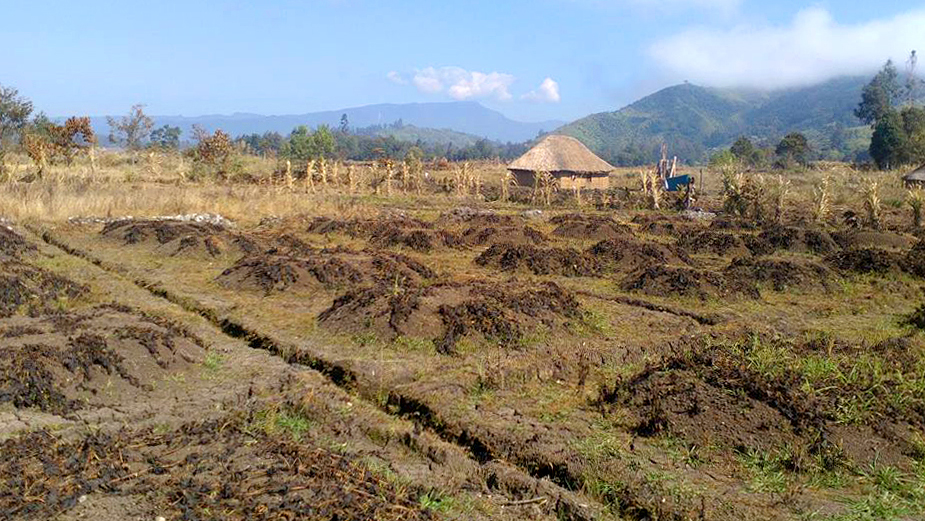
Mougulu, a mission station in the Strickland Bosavi region of Western Province was one of these places. Built within the territory of the Bedamuni tribe, of which there are some 12,000 members, the settlement at Mougulu has been carved out of a harsh and rugged environment. After months without rain, the crops that the people here rely on as their only food source had failed. When rain began to return in fits and starts, insect and rat infestations ruined much of what grew. At the usually busy market, the stalls were as good as bare: a pumpkin, a bunch of greens, a handful of beans to share among a couple of thousand people.
Starving and malnourished people had begun to arrive at Mougulu’s health clinic, having walked for days from other remote communities to get there. There are no roads and the terrain is mountainous and unforgiving. Among the number of drought-related deaths and illnesses reported in the area, one woman had cracked her head open when she slipped down a cliff-side while searching for food in the dense bush.
While news of this rapidly unfolding disaster had not been heard in Port Moresby, it was starting to spread elsewhere. One of the first to be alerted was Sally Lloyd, a volunteer Australian community development worker who, for much of the year, calls Mougulu home. Arriving in Mougulu on 1 January 2016, she quickly began to gather the kind of evidence that she knew would be needed to spark a response.
To meet Sally is to be given a glimpse of otherwise hard to know people and places. She not only speaks the local Bedamuni language but understands its nuances. So, when undertaking a count of the number of people reported dead due to food shortages, she knew to ask whether they were simply “dead” or “dead-finish”. It turned out that some had been “dead”: they had fainted from weakness or fallen unconscious after eating poisonous mushrooms. Sadly, others were “dead-finish”: they had died as a direct result of a lack of food and water.
Having worked for decades to help reduce local rates of infant mortality, malnourishment and stunting, Sally was shocked by the state in which women and children were presenting at the health clinic. She told the Pacific Islands Development Program in late-January that:
“A little boy came in one day, or his father carried him in … he was really dehydrated, malnourished, very, very hungry and he had fainted, and then become unconscious. They had really nothing to give him and he was too flat to even get a drip into him. We just tried to rehydrate him a little bit and things like that … to see little children in that state because they have not had adequate food is quite heart-wrenching.”
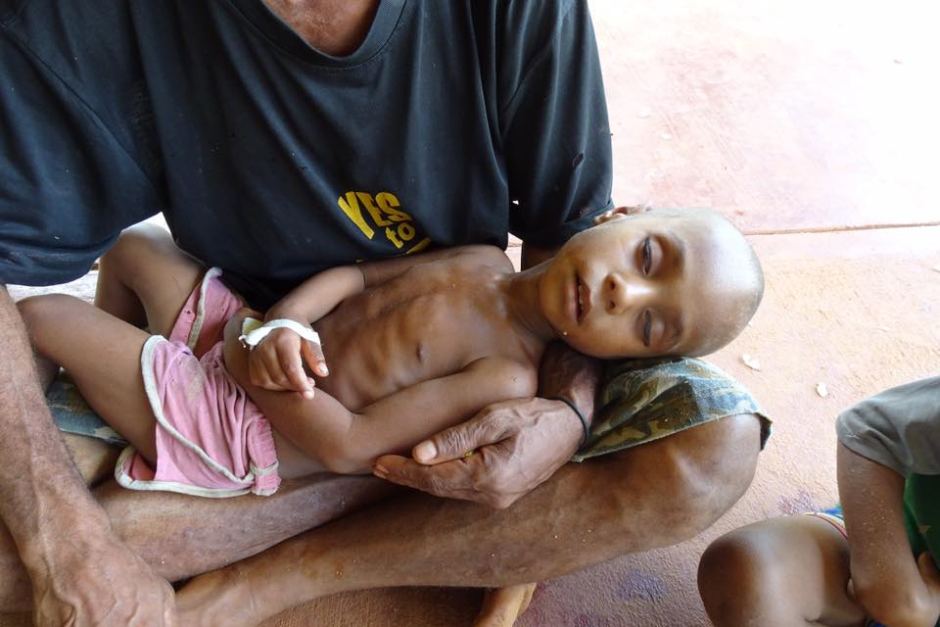
She began to photograph some of the severely malnourished and dehydrated people in need of care. One of the women she photographed had arrived at the clinic ready to go into labour with twins. Margaret Hagobai had walked for two days to get to Mougulu and in Sally’s words, she was “skin and bones”. After a complicated and painful delivery, one of the babies died the following day.
Sally shared this and other stories along with her photos via social media and emailed them onto friends that she hoped could help, including Dr Michael (Mike) Bourke.
An agricultural scientist and geographer, Mike has extensive knowledge of Papua New Guinea’s agricultural sector and rural communities. He had spent the second half of 2015 trying to raise awareness of the severity of the drought for people across the country, and particularly those in remote, high altitude locations. A major component of this was his work with ANU colleagues to publish a map in December 2015 of the food needs of drought-impacted areas of rural PNG. On the map, Mougulu and surrounds are shown to lie in a “Category 5: Extreme Situation” area, denoting that there was no food available at all.
Mike recognised the power of the images that Sally had sent. He put her in touch with Malum Nalu, a journalist from The National newspaper. Malum wrote a two-page article titled ‘Lloyd returns home to death, starvation’. Sally’s photos and the story of the forgotten communities of Western Province became front page news. Soon Sally was being asked to brief government and aid agencies on what needed to be done.
Sally went on to work closely with communities to distribute the food relief that was eventually delivered. She’s grateful that in this process local people were trained in the skills needed to undertake this work. Those same communities needed to draw on this training in logistics and coordination when their lives were upended once again, this time in early 2018, by the largest earthquake to occur in Papua New Guinea in over a century.
The accuracy of the data Sally collected and the impact of her photos led to donations from USAID and the Ok Tedi Foundation, and the involvement of the United Nations World Food Program (WFP) in distributing food aid. UN Resident Coordinator in Papua New Guinea, Roy Trivedy, explains why Sally was instrumental in galvanising the response to the drought, saying:
“We (the humanitarian partners) kept telling Government officials that in some districts people were really struggling with food and water issues. It was only when Sally got in touch and said that in parts of Western Province people were really badly malnourished and even dying that some leaders started to take notice.”
Working for the WFP, Sally coordinated the airlift of 691 metric tons of rice in Western Province, which eventually reached 77,657 people. The Emergency Coordinator for the WFP, Mats Persson, notes that this equated to 585 flights, and that most of the time Sally worked in this capacity alone.

Sally’s tireless efforts during the drought are just an instance in a lifetime committed to the people of this isolated part of PNG. From her arrival in Papua New Guinea at the age of five, until today, Sally has listened to, learned from, advocated on behalf of and actively strengthened the community at Mougulu and those surrounding it. As you might imagine, her dedication and selflessness didn’t emerge in a vacuum: she comes from a family of people who share these qualities and they are integral to her story.
Half a century in PNG
Sally’s family has lived and worked with the Bedamuni people since the late 1960s, when her parents, Tom and Salome Hoey, went to Western Province to establish a Christian mission there. Raised in farming families from Queensland, they are both immensely practical people who had a range of life skills to add to the training they received at Tahlee Bible College before leaving Australia.

Tom’s first job was to scout a location suitable for airstrip development. Supplies delivered by plane are literally a lifeline in places like Mougulu, where there is no river or road access. A short film was made about the three week journey that Tom and two other missionaries from the Asia Pacific Christian Mission undertook in 1967 to make contact with the Bedamuni tribe and seek their permission to build an airstrip within their territory.
Joined by a local translator and 40 men carrying supplies, we watch the intrepid party head into dense forest. The film’s narrator reports that “Each man knows it may be the most dangerous journey of his life”. Little was known of the Bedamuni at the time, though it had been established some years earlier that they practiced cannibalism and a previous attempt at making contact had found them to be “hostile and elusive”.
Along the way we see the impressive burial platforms customary to the Bedamuni, on which corpses are laid out. The relatives of the deceased sit with the rotting corpse to mourn and handle it until it is just bones. The clean skulls of the dead are later displayed around the entrance to the communal long-houses, in which all members of the tribe lived at that time. We’re also shown the long bamboo spikes that Bedamuni tribes would place on the approach paths to their long-houses so that raiding parties could not surprise them during the night.
Though these images are excitingly reminiscent of an Indiana Jones movie, what stayed with me from the film are the scenes of Tom taking notes while speaking with Bedamuni people. From the earliest days of his life there, he began the work of learning and creating the first written form of the language, also called Bedamuni (sometimes known as Biami). Until this was accomplished, translation from English to Bedamuni was a Chinese-whisper type process using up to five different languages.
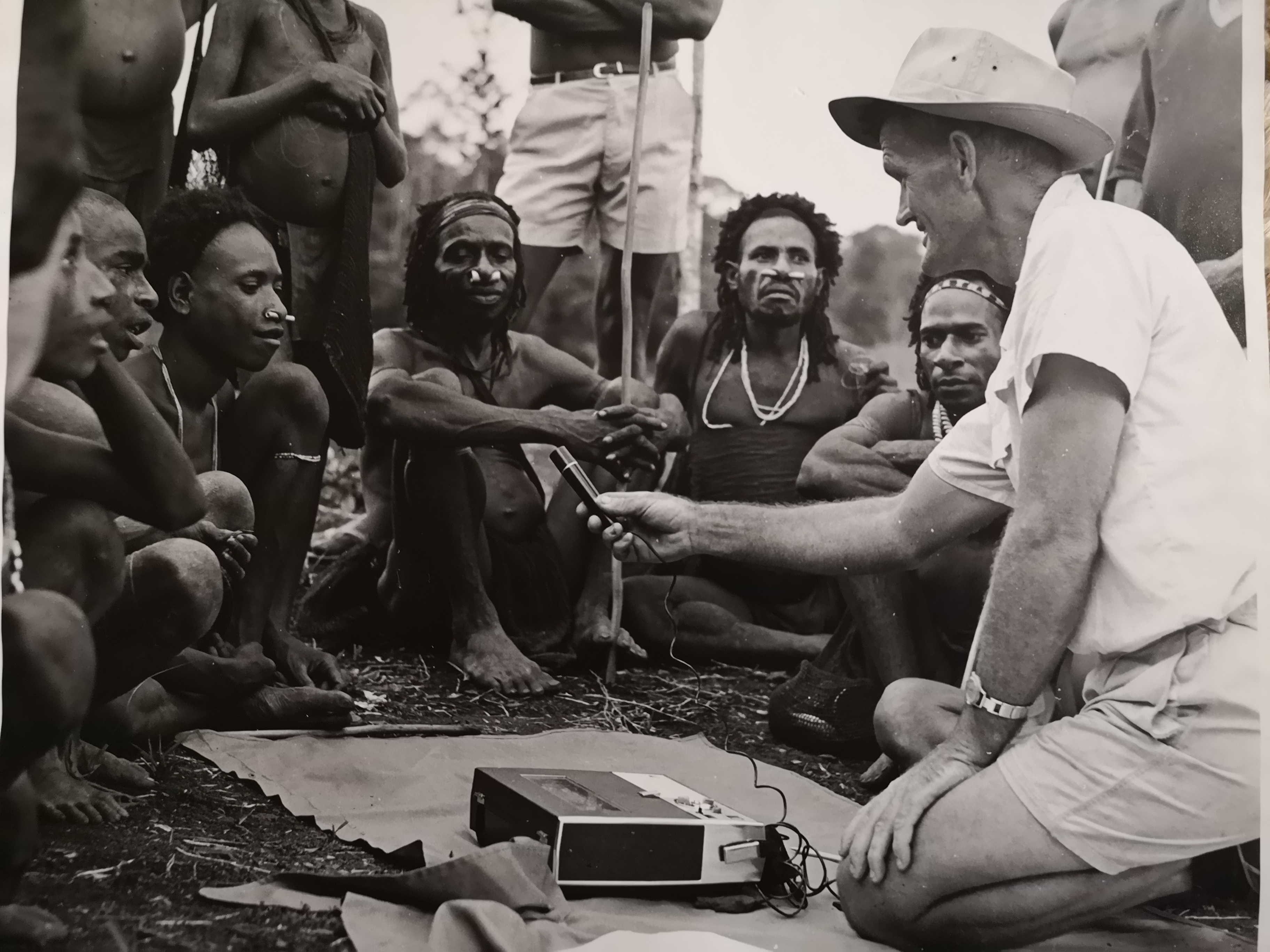
Over time, Tom and Salome would work with the local people to build five airstrips in the area using a small tractor that had to be delivered in pieces by helicopter. Each airstrip was later accompanied by an aid post, school and other services. At Mougulu, the Hoeys built a health clinic, church, school, radio station, hydro-electricity plant, homes and other buildings. The work at the church, school and health clinic was also undertaken by them, during which they mentored and trained local people to provide these services.
Now in their eighties, Tom and Salome continue to visit Mougulu to oversee this work and contribute what they can. In all of these endeavours, Sally and her four siblings were necessary and valued contributors. While Sally describes the freedom and adventure that she and her brothers and sisters enjoyed as kids, by the age of nine she had learned to assist her Mum in delivering babies and by sixteen she had established the first pre-school in the area, teaching children in both Bedamuni and English.
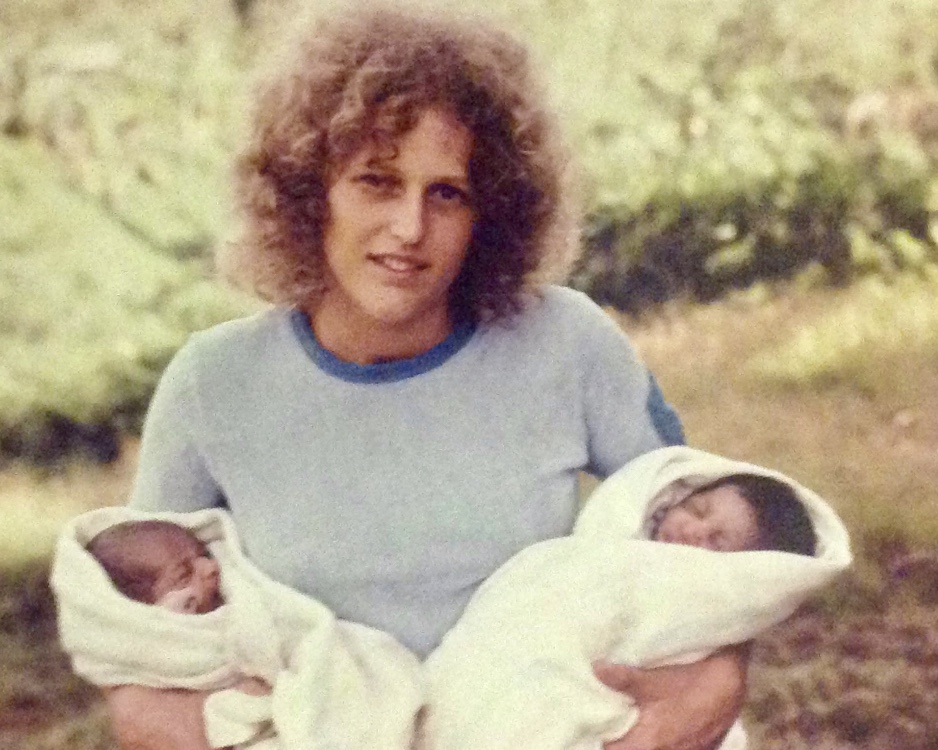
Sally’s brothers, Roy and Rob, would go on to become pilots with Mission Aviation Fellowship (MAF), an international Christian organisation founded in 1947 by veteran air force pilots from countries including Australia and New Zealand. It opened its first operational base in PNG in 1951 and has grown to become an essential service provider there and in other remote places around the world. The fixed-wing light aircraft that MAF fly make it possible for pilots to reach the airstrips that people like Tom Hoey have built on mountainsides and in densely forested settings across PNG. The size of the planes and the conditions in which pilots fly mean that it is a thrilling but dangerous occupation.
Tragically, after flying with MAF for 19 years, Roy Hoey died in December 1994 when the plane he was flying crashed in the Star Mountains of Western Province. He had 28 passengers on board, most of them mine workers and their families. Buried at Mougulu, Roy was survived by his wife Lynn and two young children. His son Tom is now a commercial pilot, like his uncle Rob. They both return to PNG as they can to assist local communities through family generated projects and to fly partners in development services to the region. (For an insight into the life of missionary families in Papua New Guinea in general and to learn more about Roy and Lynn Hoey’s experience in particular, see Lynn’s memoir: Beyond the Boabs and Billums: Letters of My Life; and her daughter Taffline’s photo essay of a visit to Mougulu in 2012).
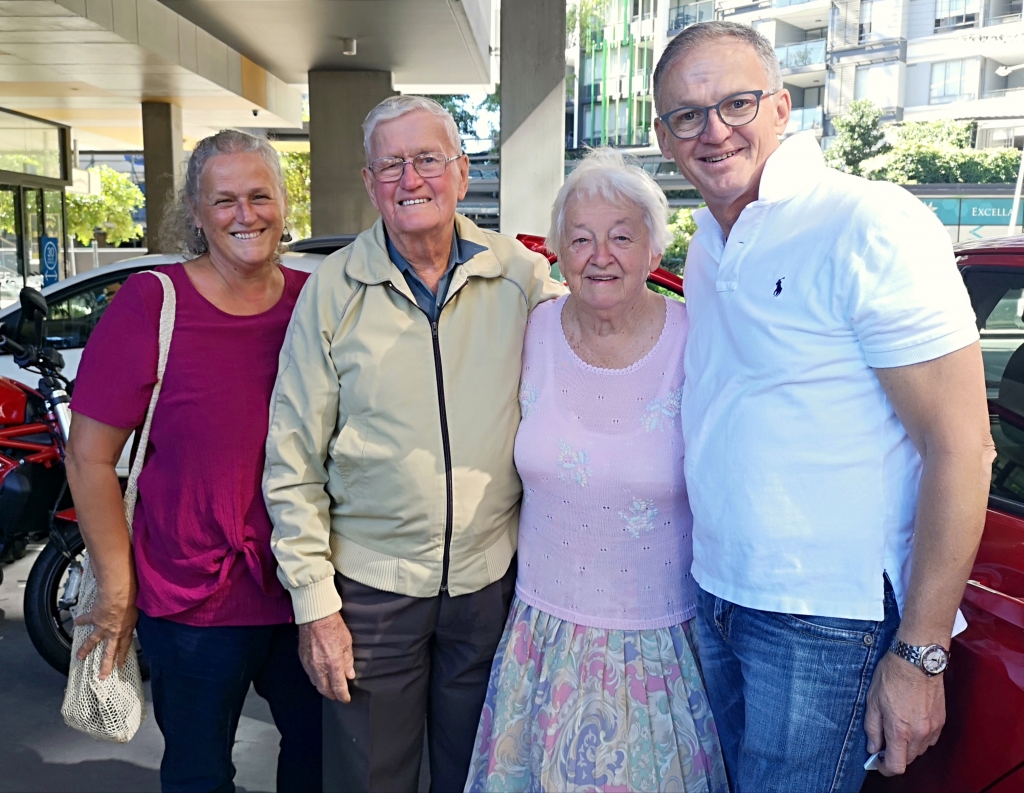
Sally’s husband Ian, their children, Craig and Amanda, and Sally’s son Mark, all have their own relationship with Papua New Guinea. Ian and Sally took Craig and Amanda to live in PNG from 1997 to 2001, where Ian worked as a teacher. In 2013, Amanda crowd-funded a visit to Mougulu to document and photograph the Bedamuni tribe for historical archiving. And in 2014, Mark travelled to Mougulu to assist with a health project, returning again in 2016 to volunteer in disaster relief.
Just another day in Mougulu
While Tom and Salome went to Papua New Guinea to save souls, their approach to mission work was imbued with the values of community development, and they carried it out with respect for the culture, traditions and priorities of the people they worked with. This inheritance is present in Sally’s work today. More at home sleeping on a dirt floor than in a hotel, and more at ease at a village meeting than behind a desk, she is a valuable entry point to understanding the needs and interests of local people.
In some ways her skill set is intangible, such as knowing not to simply take the word of the first people that approach when arriving in a remote community to assess needs: instead bringing the village together as a whole and taking time to talk with them collectively. Or recognising the problems that can follow from distributing food relief according to the Western metric of family or household unit among communities where families or households can consist of up to 30 loosely-related people. In other ways Sally’s skill set is very concrete: her long-term relationship and track record with the people of the area mean she is trusted and believed. Advice that might otherwise go unheeded or received with skepticism is taken seriously when conveyed by Sally. During the 2018 earthquake, this turned out to be particularly valuable as it enabled her to correct local misconceptions about when, where and why aftershocks would occur.
Travelling regularly between the Hoey family home in Mougulu and her home with Ian in Brisbane, Sally’s largely unpaid work covers the spectrum of challenges facing the people of Mougulu and in many senses fills a gap created by missionaries slowly moving out of the region. As in other parts of the country, pioneering mission workers like the Hoeys have not been replaced. Sally believes that this has led to a decline in service provision for remote communities in key areas such as health and education.
For example, she tells me that in the Strickland Bosavi region, home to approximately 35,000 people, there are 31 health clinics. According to government standards, there should be 131 workers employed across those facilities: currently there are 27. This under-resourcing is particularly concerning given the health crisis that experts warn is developing in Papua New Guinea due to the re-emergence of polio and the high prevalence of a drug-resistant strain of tuberculosis.

Sally sees her role as twofold: to advocate for funding to reinvigorate services; and to empower and educate local leaders to be proactive in lobbying government and international donors to meet their needs. At present, her work is largely on an ambitious community development plan for the Strickland Bosavi region focused on education, health, access and livelihoods. At the centre of the plan is a project to build a college at Mougulu that would offer secondary education and vocational training. This would cater to people across the region, some of whom currently travel up to five days by foot in order to attain a secondary school education. The college would also incorporate an administration office where data could be recorded on population numbers, health outcomes and the management of facilities.
The plan, which has a timeline of eight years, is the antithesis of the kind of development projects that Sally sees as routinely failing local communities and wasting resources. She gives the example of a recent water, sanitation and hygiene initiative in which the community was told by visiting health workers that all children must wash their hands after using the toilet and before they eat. While acknowledging the merits of the message, she explains that if you live a kilometre from the river and have no means of collecting or storing water, it’s “all just talk”.
A great deal of preparatory work has already been undertaken in relation to the community development plan, particularly in relation to Strickland College. Extensive stakeholder consultation has been conducted and the plan has the support of the communities and heads of relevant government departments. However, there remain myriad risks and dependencies that need to be overcome and accounted for, not least of them funding.
Achieving even some of the key priorities of the plan will require the same sort of fortitude and commitment needed to walk out into a dense jungle to befriend an unknown tribe with a reputation for cannibalism and hostility. To this Sally would say, “It’s just another day in Mougulu. There are always challenges, but if you make a difference, it can be very rewarding.”

